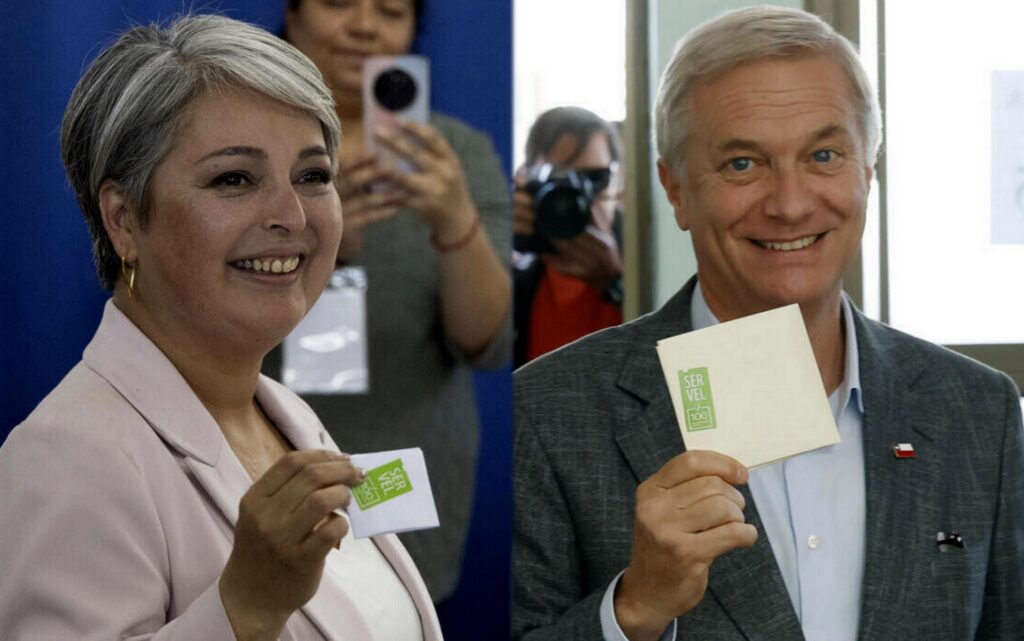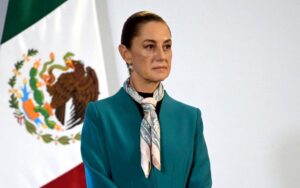Chile’s Presidential Election: Voters cast their votes aim new president to the country with confrontation between left and right candidates

Chileans casted their ballots on Sunday in an election dominated by crime and immigration issues, with a leftist candidate, Jeannette Jara of the communist party and a far-right candidate, José Antonio Kast of the republican party, will face off in a second round.
The first results showed Jara advances by 26.85%, while Kast obtained 23.92%.
Over the past decade, Chile, one of Latin America’s safest countries, has seen a sharp rise in murders, kidnappings and extortion, sparking panic and anxiety among residents.
Homicides rose from 2.5 to 6 per 100,000 inhabitants in a decade and 868 kidnappings were recorded last year, a 76% increase from 2021, according to authorities, as many voters have expressed concerns for their safety.
Sunday’s vote is seen as a test of the South American left after it retreated in Argentina, Ecuador and Bolivia and faced major challenges in Colombian and Brazilian elections scheduled for next year.
The current president, center-left Gabriel Boric, who four years ago became Chile’s youngest president at the age of 36, is barred from running for a second consecutive term.
During his tenure, Boric has made some progress in the fight against crime, with the murder rate falling by 10% since 2022 to 6 per 100,000 people.
But Chileans remain concerned about the rise in criminal violence, attributing it to the arrival of gangs from Venezuela and other Latin American countries.
The far-right candidate, José Antonio Kast, known as the “Chilean Trump,” has vowed to end irregular migration by building walls, fences and trenches along the desert border with Bolivia, the main transit point for migrants from poor countries to the north of the country.
Kast, a father of nine, promised his supporters that the third will be steady after he first ran for president in 2017 and in 2021 when he lost to Gabriel Boric.
After casting his vote in one of the capital’s centers, he said: “We need to close ranks to face the problems… related to security”.
Ahead of the election, Kast, the Republican Party leader, set a deadline for 337,000 irregular immigrants to sell their property and return home, under the threat of deportation and the loss of everything they own if he wins.
Experts says that, in case of Kast managed to win at the second round, he will join in an alliance with Argentine President Javier Milei and US President Donald Trump.
On the other hand, the leftist candidate Jeannette Jara, faces the daunting task of overcoming anti-communist attitudes and resentment of the performance of President Boric’s outgoing administration.
Boric, a former leader of student movements, outperformed Caste in the 2021 election by pledging to create a welfare state after protests against inequality in the country two years earlier.
But his presidency was greatly weakened by the overwhelming rejection of a new progressive constitution months after he took office.
If he wins, Kast would become the first far-right president since dictator Augusto Pinochet, who ruled the country from 1973 to 1990.
The son of a soldier in the German army under Adolf Hitler, Kast had previously defended Pinochet, who ousted democratically elected Socialist President Salvador Allende in a military coup in the early 1970s, established an authoritarian regime and oversaw the killing of thousands of dissidents.
Jara had joined the Communist Party at the age of 14, but campaigned as a moderate candidate, drawing on her reformist record during her previous tenure as labor minister, when she reduced the number of hours a week from 45 to 40 and raised the minimum wage.
Jara vowed to ensure that “every Chilean family can easily cover their expenses until the end of the month”.
The leftist candidate said she had no security complex, defending in particular tighter control of migration flows.
But after casting her vote in Santiago, she said that stoking fears isn’t enough to govern a country.
Chile this year introduced mandatory voting for the first time since 2012, adding nearly five million voters.
In addition to electing a new president, voters vote to elect members of the House of Representatives and half of the senators.








